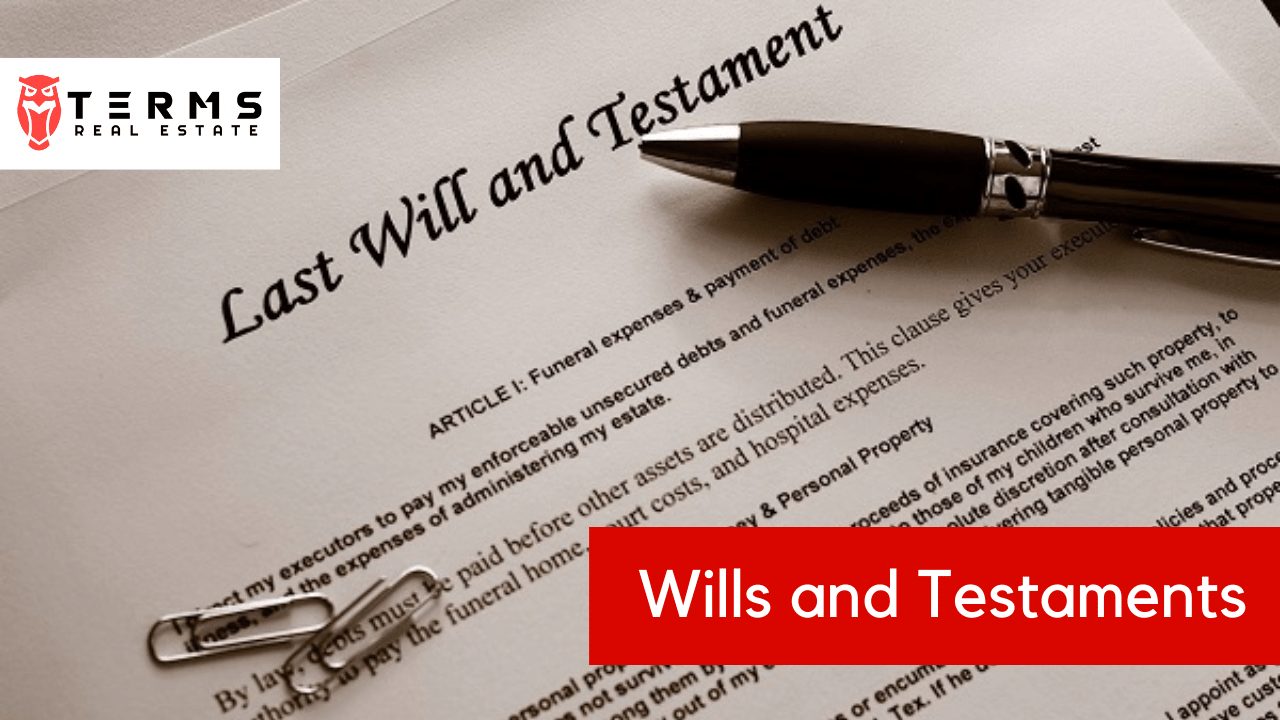If you die without a will, the prevailing laws of descent and distribution will determine who gets your property by default. These laws vary from state to state, but the distribution is usually to your spouse and children, or, if there are none, to other family members. A state plan generally reflects the legislature’s assumption of how most people would dispose of their estate and would provide protections for some beneficiaries, especially younger children. This plan may or may not match your actual desires, and some of the built-in protections may not be necessary for a harmonious family environment. A will allows you to change the default state plan to suit your personal preferences. It also allows you to exercise control over a myriad of personal decisions that the broad and general standard provisions of a state cannot address.
What Does a Will Do?
A will provides for the distribution of specific properties that you possess at the time of your death, and you can generally discard them in any way you wish. Your right to dispose of your property as you may, however, be subject to most states’ laws regarding a forced inheritance that prevents you from disowning your spouse and, in some cases, your children. For example, many states have the spouse’s election law that allows the spouse to claim some interest in their estate, regardless of their will (or other documents that deal with the disposition of their property) to be relevant to their property. Your will does not govern the disposition of your property, which is controlled by beneficiary designations or a title. Thus, it passes out of your inventory property. These assets include common name ownership with surviving rights, death accounts, life insurance, pension plans, and accounts, as well as death benefits for employees. These assets are transferred automatically in the event of death to another person. Their will applies only to them if they are payable to their equity under the designation of the beneficiary that applies to them. Your probate estate includes only assets that are subject to your will, or the laws of a will state if you do not have a will, and in which the Probate Court (in some jurisdictions called the Probate Court or orphans) may have authority. For this reason, reviewing beneficiary assignments and preparing a will is an essential part of the estate planning process. It is important to note that whether a property is part of your property does not depend on whether a property is part of your taxable property for property tax purposes.
How to execute (sign) a will?
Wills must be signed in the presence of witnesses, and certain formalities must be followed. Otherwise, they will be invalid. In many states, a will formally be executed before witnesses with all notarized signatures are considered “to prove their authenticity” and maybe admitted for approval without testimony or other additional evidence. Even if a will is finally regarded as valid despite the errors in the execution, it can be expensive and challenging to face such a challenge. It is best to deal with a potential problem by adequately performing the will in the first place. An amendment after a will is called a codicil and must be signed with the same formalities. Be careful when using a postscript, as problems may arise if there are ambiguities between your provisions and the modifications you made earlier. In some states, the will may refer to a memorandum circulating
specific tangible personal property, such as furniture, jewelry, and automobiles can be altered at another time. Even if such a memo is allowed in your state, be sure with caution. This type of separate document can create confusion or difficulty if it is inconsistent with the terms of the will or if it is randomly prepared.
Do Executor Probate a Will Without a Lawyer?
A will must be verified, and an executor must be appointed before the assets of a deceased person can be legally distributed. This is not for the executor, nor is this the executor’s content; legally, it is legally possible to manage the property deals and transfer the actions and actions to the heirs.
Function:
The executor supervised the property until the assets are disposed of, and the estate is closed. If the will is not specific to the particular person, he must make those decisions. The example must be maintained, for example. An executor named in a will may file a request for a petition for probate in court once the deceased person has died, and an attorney is typically not required under state laws.
Effects:
Apply for certification. Once the will has been verified, the document is considered valid by the court. The executor now receives testamentary letters with a document that allows her to access the decedent assets, such as bank accounts and retirement savings. Failure to comply with all court requirements may have a delay in inventory procedures or additional costs for the property.
List of different types of wills
Wills must meet specific standards to be valid. The person who made the will, said the testator, must be at least 18 years old and in good health. The testator must appoint an executor, ensure the distribution of property after death, sign and date the will in the presence of witnesses. You can draft several different types of wills around these and with the other limitations. Seek the help of a lawyer by choosing the type of test that is right for you. Also, keep in mind that state laws to perform every kind of will and must be checked carefully.
Simple Wills:
A simple distribute ownership of the property of a tester whose finances are not complicated. Many testers themselves write simple wills, although a lawyer’s assistance can help avoid mistakes that could lead to unintended legal consequences. A simple will must be printed rather than handwritten and must include the name, address, and marital status of the testator. Statements are indicating which assets should be sent to which beneficiaries must be present. There is also a section that names an executor for the property and a guardian for the minor children of the testator if the other parent is dead. There are places for the testator and two or three witnesses (depending on the state in which you live) to print and sign their names. The will must include the date on which the will was signed, not the time it was written.
Testamentary Trust Wills:
A testamentary trust is a will that puts at least part of your property into a trust. A trustee distributes its assets to a beneficiary but is administered by a third party who controls when and how the property is distributed to the fiduciary beneficiary. You can establish wasteful trust, for example, for the benefit of a financially irresponsible beneficiary. The trustee would distribute the fiduciary assets gradually, instead of presenting them to the recipient in a lump sum. Although the executor of the property and the trust administrator may be the same person, they do not have to be. The form of a testamentary trust may be similar to that of a simple will.
Joint Wills:
A joint will is created by two testers who leave their properties to each other; in other words, the first dying tester gets everything. Also, it specifies how the property will be distributed when the second tester dies. A joint will cannot be revoked without the testers’ consent, which means that it is irrevocable once one of the testers dies. Like wills of the testamentary trust, the format of a joint will may be similar to that of a simple will.
Living Wills:
It gives you instructions on the type of medical treatment you want to receive if you become too sick to communicate. For example, you may state that if you become terminally ill and unconscious, you will not want to be connected to a feeding tube, even if you die without it. The formal requirements for a living will are more flexible than for a will, but they must be clear and detailed.
Knowing about the will is a good thing to consider; it is a legal document by which a person, the testator, expresses his wishes about how his property should be distributed at death.



